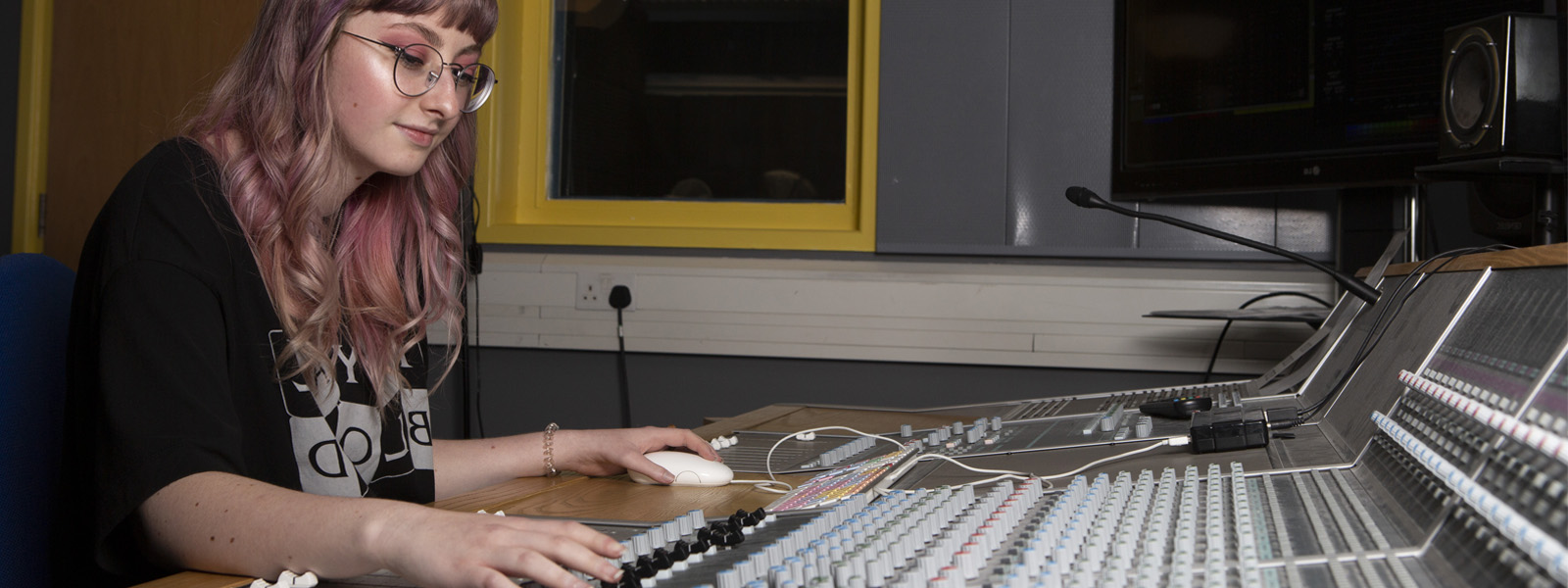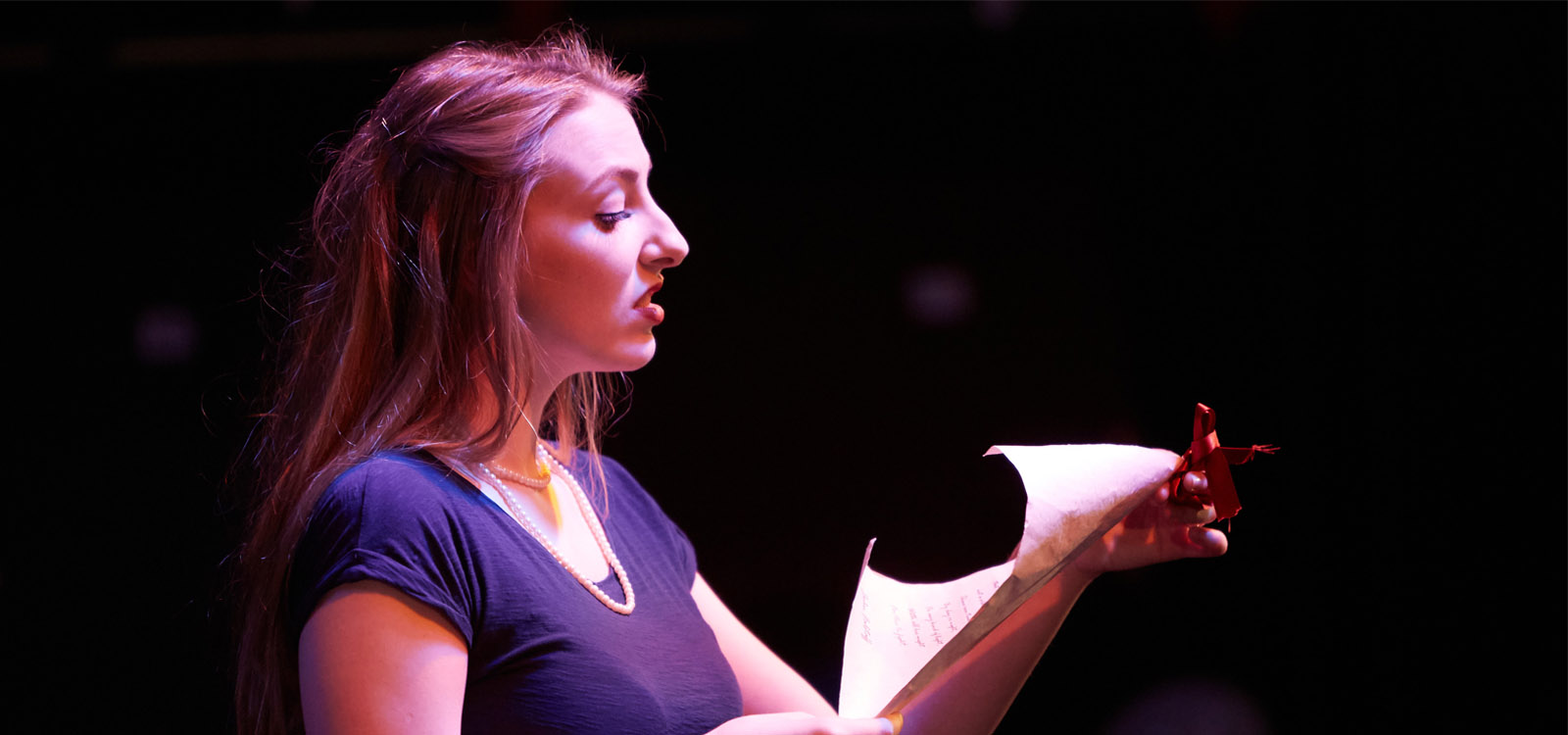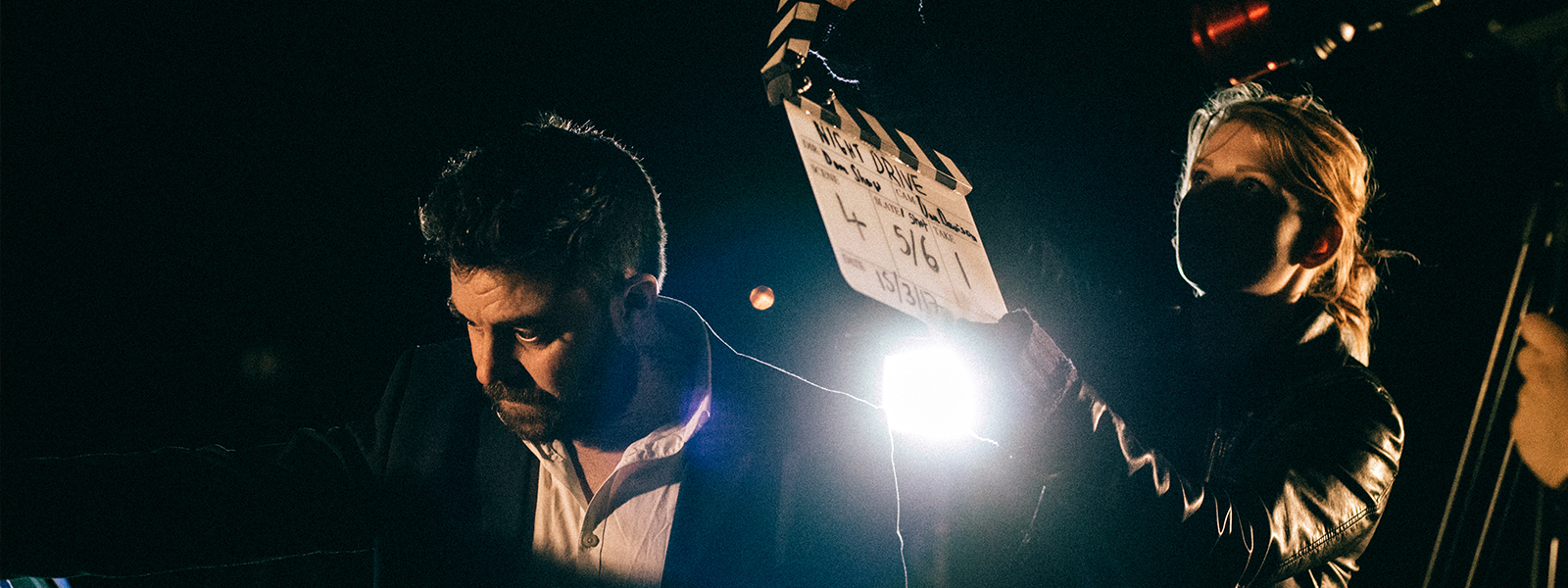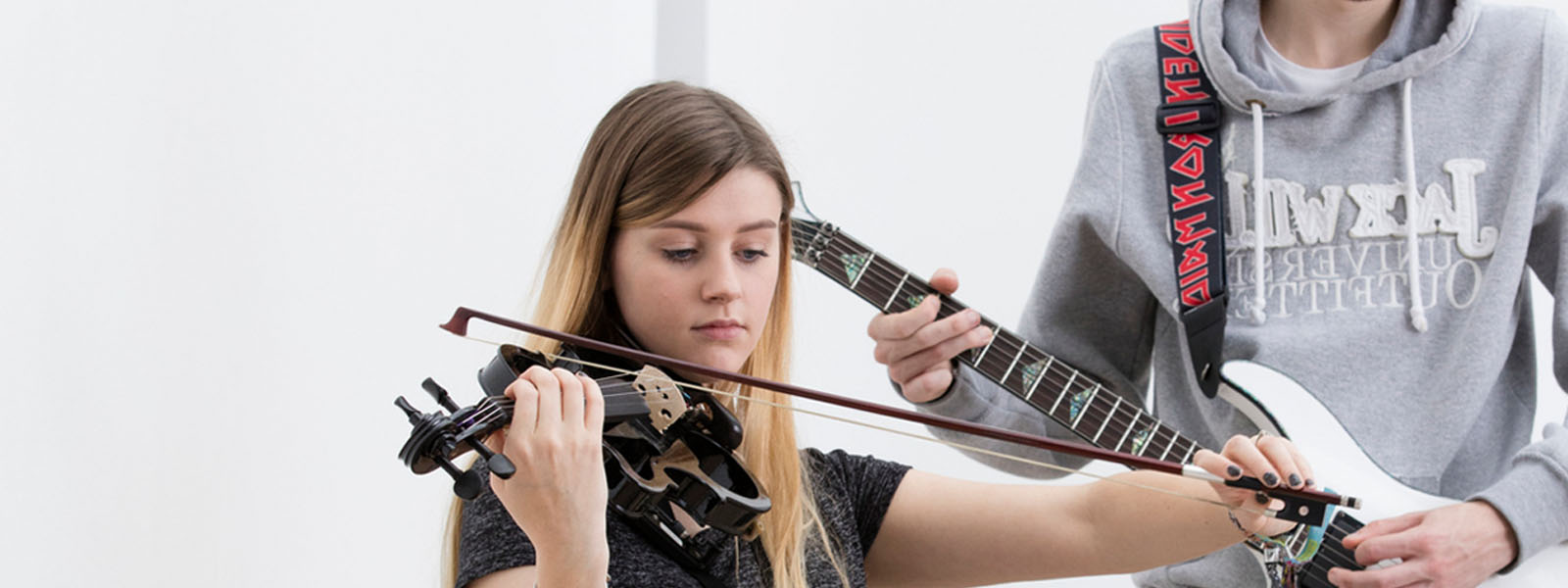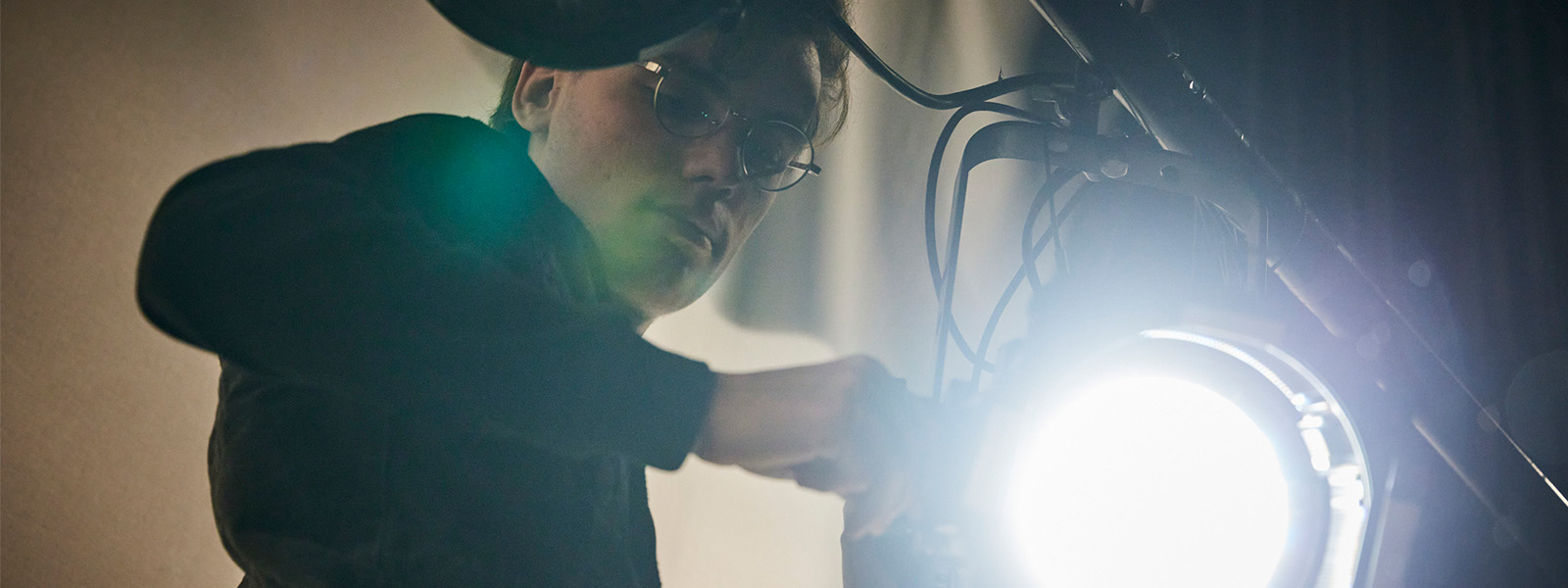Module Overview
This module sets out to explore some of the ways in which we make, sense, and transform ourselves and our worlds through our sonic and auditory cultures. We will focus on a number of important phenomena in our consideration of sonic practices, ways of hearing and contemporary scholarship on the auditory dimensions of media. Designed to engage both Media Studies and Sound and Music Production students in their respective fields, we will move from discussions of sound in relation to the affective capacities of the body through discussion of audition in relation to space and place (focused through the concept of the ‘soundscape’). We will consider discussions of sound and technology and explore concepts and phenomena of ‘noise’ and ‘silence’ in sonic and musical experience. This module encourages collaborative research in the spirit of ‘Student as Producer’, the organizing principle of teaching and learning in the university.
Module Overview
In this module students will explore the development of music and audio culture through an eclectic range of case studies illustrating how situating music within diverse cultural contexts provides a broad and nuanced understanding of the role music plays in the lives of individuals, the formation of communities, and the influence on global culture. Through analytical and critical approaches, such as musicology, ethnography, socio-history, and psychology, the module aims to deepen students' comprehension of the myriad ways in which music can be studied, analysed, and comprehended.
Module Overview
In this module, we consider research as a process that informs both ‘practice’ (broadly defined) and ‘theory’. This module enables students to engage with methods for researching audiences, institutions and auditory culture; and primary sources such as digital data, film, television and video game soundtracks and archival materials. We will critically reflect on various stages of the research process, including formulating research questions and objectives; developing a literature review; selecting appropriate methods; and considering research ethics. In doing so, this module prepares students for their Level 3 Independent Study Project, as well as their Level 3 Audio Projects and Creative Enterprise/Creative Industries Case Study.
Module Overview
The module is designed to examine and analyse the use of audio and music in the cultural industries. Specifically, the increasing importance of sonic branding in media networks, corporate branding and advertising. Audiences and consumers are mostly aware when they are a target for advertising and/or branding, but equally may have an unconscious understanding of the message.
A number of key questions centre on the cultural effects of advertising and branding for example the salience of music in order to identify with and promote a brand: note the yearly and eagerly awaited John Lewis Christmas ads. Similarly, how does one know one is listening to specific BBC or commercial radio station just from the jingles or station sound?
The module explores these questions in two ways: firstly, by providing the opportunity to understand how these messages are constructed and more specifically how the use of audio and music differentiates a brand from its competitors, and secondly, by researching and understanding the creative process of sonic branding production in an industry context.
Students are encouraged to apply these ideas via the application of branding and audience research in order to pitch a short piece of created audio designed from a specific brief.
Module Overview
This module further develops students’ skills through use of advanced techniques of sound editing and design for all visual media outputs, such as film, television and screen devices. Through this, a deeper understanding of the role of the sound editor/sound designer and the audio post-production processes involved at the later stages of completion is achieved.
Students learn how sound is acquired for film and television productions and what happens to the sound after the picture editing is completed. Students will work with digital audio workstations and software technologies and the sound ‘dubbing theatre’. Areas covered include synchronising sound and picture rushes, import/export of audio files, supplying audio files for the editing process, audio tracklaying using Digital Audio Workstations (DAW’s), Editing dialogue and speech, recording Foley*, ADR* to picture; recording commentary and narration. Creative use of music in sound post-production is also covered, including composer spotting sessions, selecting and using production music and assessing musical requirements. The roles of mixer, assistant and sound editor are explored, in relation to selecting and assembling sound recordings and producing different mixes in preparation for final sound production of a television programme, film or screen based output. Students will understand the distinctive role of the film, television and screen sound editor and the creative sound post-production process for all moving image productions.
(*The art of movement re-recording and using props for sound effects creation to picture)
(*Automated Dialogue Replacement)
Module Overview
The Industry Placement Year is an exciting opportunity for students to take a year out of formal study to gain real-world experience in the creative industries. Whether you’re looking to build industry connections, develop professional skills, or explore career options, this year will give you a full-time, hands-on experience within an arts, cultural, or creative organisation.
This year is a collaborative experience between you, your employer, and the University—ensuring that you get the most out of your time in a professional setting.
Module Overview
Location sound recording is a critical component of the film-making process. Ranging from the practical aspects such as multichannel field recording and microphone types, to understanding on-set etiquette and working with actors, it is a hugely challenging technical and artistic craft.
Students will learn how separate and synchronous sound is utilised in film production and how to effectively capture dialogue for factual and fiction productions. This module will equip students with the essential skills needed to provide filmmakers with high quality production sound.
Module Overview
This module focuses on the development of students’ music mixing and mastering skills to enable the completion and presentation of their music productions in a professional manner. The module builds upon the core production and mix skills learned at level one but places greater emphasis on technical accuracy and sonic contextualisation of their work. Students will be required to mix and master a range of musical material and deliver this as a portfolio of work.
Module Overview
This module enables students to develop a range of music production skills, approaches and techniques that are relevant to the dynamic and challenging environment of the current recorded music industry. The module builds upon the core tracking and production skills learned at level one but places a greater emphasis on sonic aesthetics and overall project delivery. Students will be required to make high quality recordings and then develop the sonic properties of these recording by applying various industry standard music production techniques appropriate to a devised brief.
Module Overview
This module gives you the opportunity to produce and present a radio production and gain a professional industry credit. You can work as part of a small collaborative team to pitch a programme commission for a nominated radio station/online radio platform. As part of the module, you will be expected to research and specialise in one programme-making role where you will develop technical, creative, and production skills.

